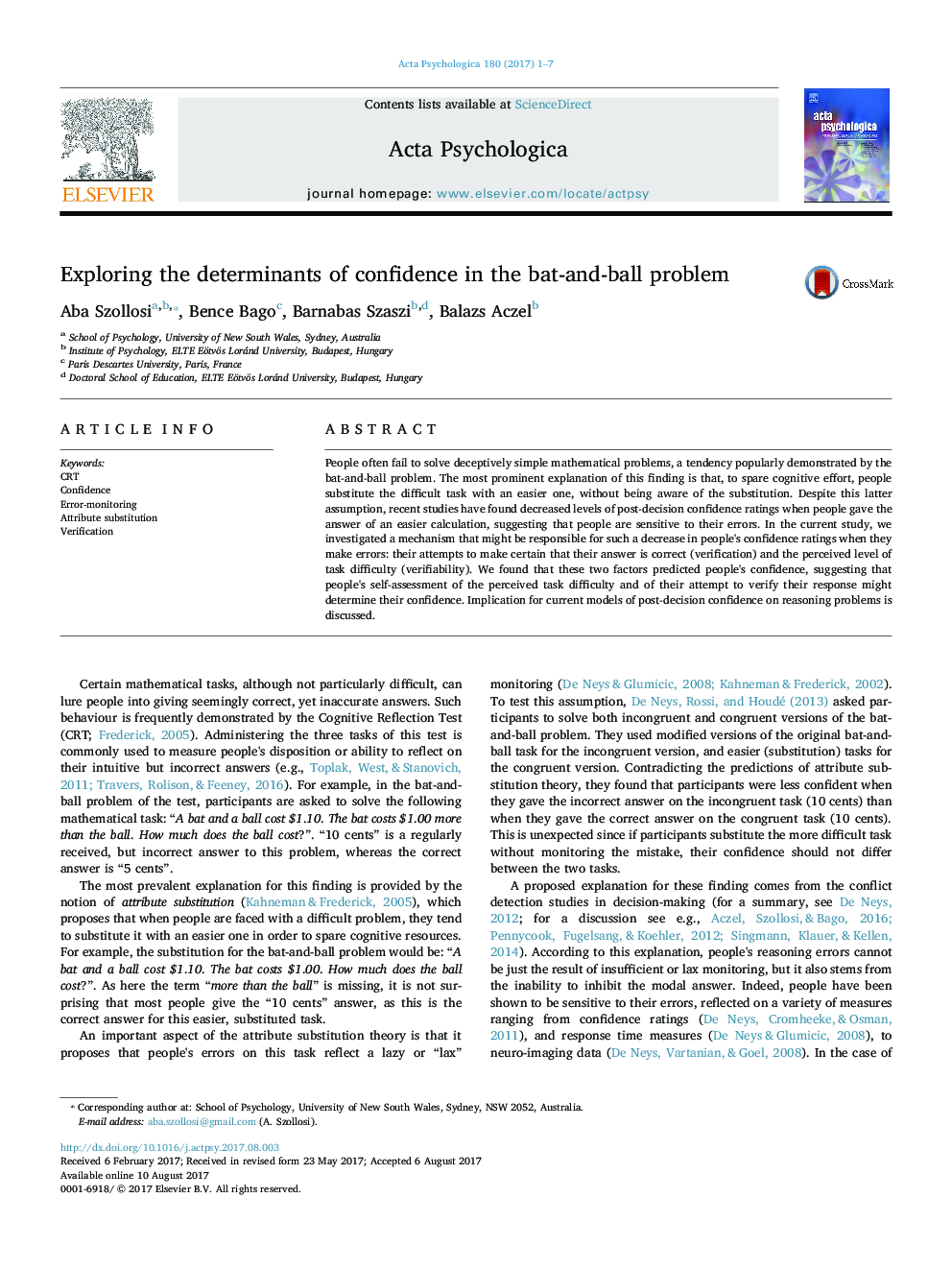| Article ID | Journal | Published Year | Pages | File Type |
|---|---|---|---|---|
| 5040176 | Acta Psychologica | 2017 | 7 Pages |
â¢People are found to substitute a difficult task with a simpler one when solving tricky mathematical problems.â¢People's confidence ratings suggest that they are sensitive to their errors.â¢We explore a verification mechanism as a potential determinant of confidence ratings.â¢We find that people's assessment of task-difficulty and that of their own verification-attempt predict their confidence.
People often fail to solve deceptively simple mathematical problems, a tendency popularly demonstrated by the bat-and-ball problem. The most prominent explanation of this finding is that, to spare cognitive effort, people substitute the difficult task with an easier one, without being aware of the substitution. Despite this latter assumption, recent studies have found decreased levels of post-decision confidence ratings when people gave the answer of an easier calculation, suggesting that people are sensitive to their errors. In the current study, we investigated a mechanism that might be responsible for such a decrease in people's confidence ratings when they make errors: their attempts to make certain that their answer is correct (verification) and the perceived level of task difficulty (verifiability). We found that these two factors predicted people's confidence, suggesting that people's self-assessment of the perceived task difficulty and of their attempt to verify their response might determine their confidence. Implication for current models of post-decision confidence on reasoning problems is discussed.
